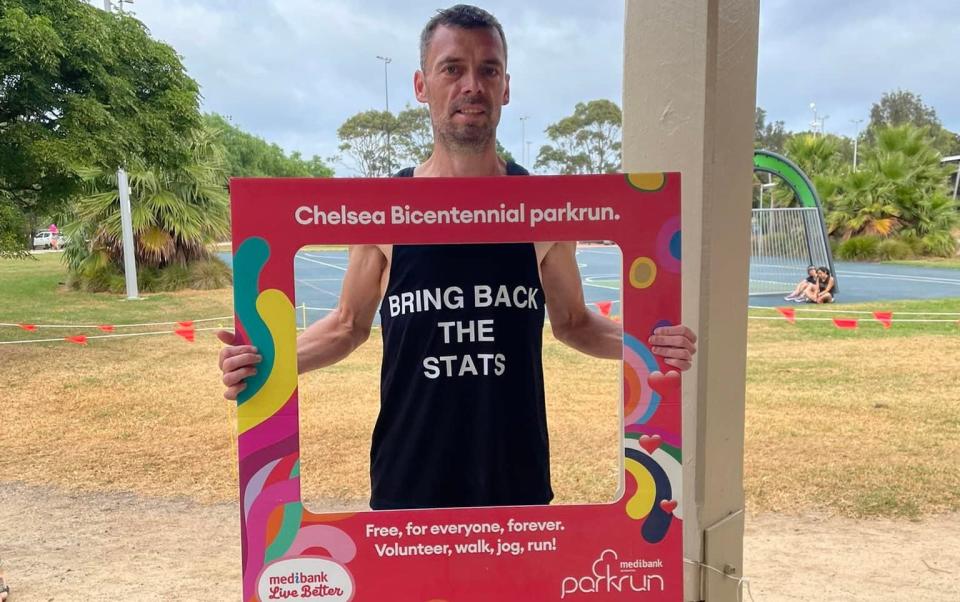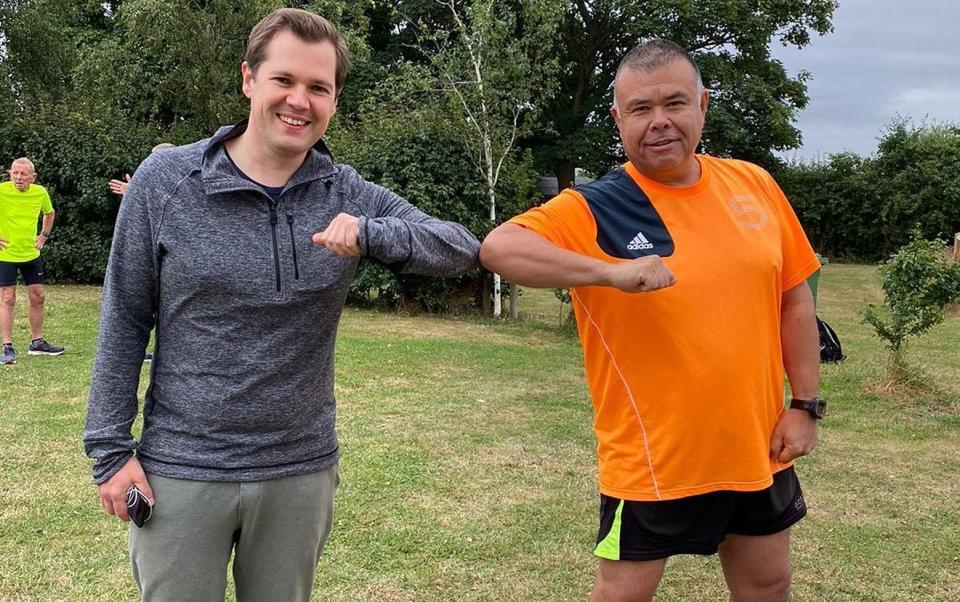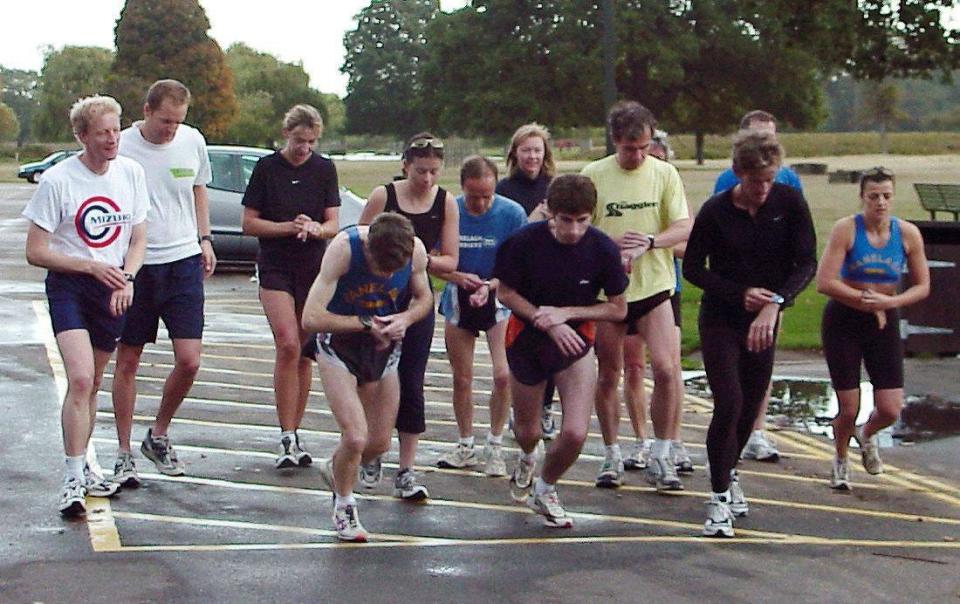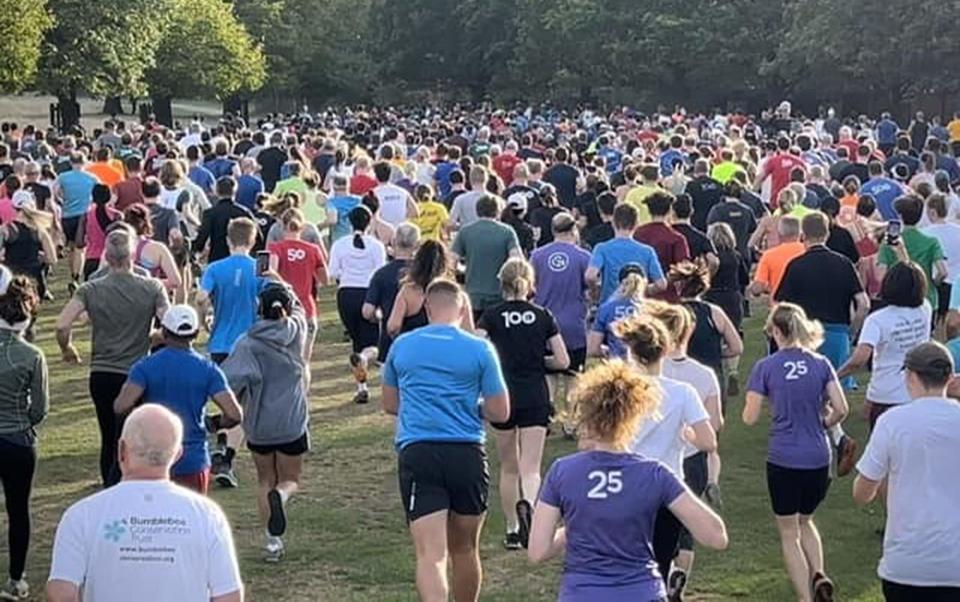Special report: How Parkrun record row ended up at the centre of the culture wars

Parkrun is preparing for its 20th birthday, but the extended family – which has expanded from 13 runners at Bushy Park on October 2, 2004 to more than nine million registered global participants today – has never been so restless.
Why is Parkrun under fire?
This beloved institution has stumbled over recent months into various rows, ranging from what constitutes competitive sport and transgender inclusion to whether so-called ‘Parkrun tourism’ – the act of visiting different venues – should be discouraged for the environment.
Calls have been made for Sport England to withdraw funding if the gender policy does not change and, according to one leading sports industry source, there is “significant concern” that the campaign could undermine public confidence in one of the nation’s most effective health initiatives. A separate petition urging Parkrun to restore recently deleted ‘performance’ data, which included course records from under-11s all the way up to over-80s, has now attracted almost 25,000 supporters.
Accusations of “discrimination” have included a Scottish academic who says that the removal of numerous statistics from events pages is prejudiced against neurodiverse people and Olympians who say that women are still being unacceptably treated by allowing gender self-identification.
Parkrun also suffered a further blow earlier this month when Sir Jonathan Van-Tam, the deputy chief medical officer during the Covid pandemic, resigned as a trustee after only a year, citing “personal reasons”.
Van-Tam wished Parkrun “every success in continuing its important work in improving the health and happiness of even more people around the world” in a leaving message.

And for all the turbulence, numbers continue to boom, new events are being added weekly, doctors are prescribing Parkrun to patients and a charity whose revenue has grown beyond £7 million (through grants, donations, selling retail products and various sponsors) is targeting a global expansion that would double its numbers and events over the five years from 2023 to 2028.
Telegraph Sport can also disclose that, despite the controversy, the Government will not be summoning Parkrun to its forthcoming round table about transgender policies in British sport and there is no current prospect of Sport England cutting a £5 million investment to help grow their weekly free 5km and 2km events.
There is also no sign of Parkrun’s leaders – or indeed its various critics – backing down in disputes that cut to the very soul of what it represents and what its future should be.
How does the transgender issue relate to Parkrun?
It is two-and-a-half years since the UK Sports Councils published guidance which changed domestic sport in a single sentence. It concluded that it was impossible to balance “transgender inclusion, fairness and safety in gender-affected sport where there is meaningful competition” because of retained differences in strength, stamina and physique. Numerous governing bodies were effectively being told that they must make a choice and the subsequent direction of travel, explicitly backed by the Government, has been to ban transgender women from the female category. This was adopted last year by UK Athletics but Parkrun, which started out as a time trial, says that its raison d’être is now firmly participation rather than competition. Runners can self-identify as ‘male’, ‘female’, ‘prefer not to say’ or ‘another gender category’. “Parkrun only exists to inspire people, from any background, to come together, to be social, and active,” says chief executive Russ Jefferys. “You can be anyone – everyone is welcome.”
But this unfairly fails to protect the integrity of women’s sport, said campaigners, who identified examples of transgender runners registering in the female category and setting various records.
They began wearing ‘Save Women’s Sport’ T-Shirts to events and were active on social media. A prominent campaigner is Mara Yamauchi, an Olympic marathon runner and Foreign Office diplomat. “Women would be entirely absent from sport if the female category didn’t exist,” she says. “It excludes male advantage. By choosing inclusion, they have not chosen fairness for females. It’s sex discrimination.”

Parkrun argues that there is a key difference between its “community-led, socially focused physical activity events” and races organised by national federations.
It has championed stories of transgender Parkrunners, such as Kate Hodge, who described feeling “always welcome” and appreciated being able to easily change gender identity on her Parkrun profile. “When you worry you might be an outsider, it’s liberating to be part of a community where you feel totally included and accepted for who you are,” said Hodge.
The debate persisted, to the ignorance of many Parkrunners, but the stakes became significantly raised over recent months. Women in Sport, an apolitical charity whose founders in 1984 included Baroness Sue Campbell, the Football Association’s director of women’s football, intervened to say that all competitive sport – including Parkrun – should have a universally protected category for natal girls or women to safeguard fairness and participation. The Policy Exchange, a think-tank on the right, then reported that “at least three female Parkrun records in the UK were held by people who were born male” and called for Sport England to withdraw its funding (which is from the National Lottery) if the gender policy was not changed.
Parkrun remained unmoved. There has been concern that a change could self-exclude people who may have transitioned if they then had to ‘out’ themselves by changing their Parkrun gender category. The main argument against Parkrun’s participatory explanation, however, was simple: “Why, if this is not competitive sport, are there results, which also feed into Run Britain’s national rankings, and so many lists of records?”
So what happened to the records?
Without warning on the morning of February 8, any Parkrunners logging in to check the data discovered that a raft of information had disappeared. Every male and female all-time age category records for senior and even junior Parkruns? Gone. Lists of the top 500 times on each course? Gone. Most first-place finishes? Gone. Historic age and gender graded tables? Gone. Lists of people below a certain barrier, such as sub-20 minutes for women and 17 minutes for men? Gone.
Some initially presumed that it was some sort of technological glitch – there was no time for a screengrab of any hard-won records – but then came a statement which confirmed that the change was deliberate.
Parkrun denies that the decision was influenced by the transgender campaign.
Internal research, it says, had found that one of the biggest barriers to participation is the “misperception that Parkrun is a competitive race” and the associated concerns of not being fit enough or worrying about finishing last.
In a statement to Telegraph Sport, it emphasised findings which showed that 40 per cent of people say that the non-race element is an aspect that appeals to them. “Removing this data is one of a number of ways we can reinforce this point, reduce barriers and show that anyone is welcome,” it said, adding that displaying this data “wasn’t in line with what Parkrun is there to do or what it stands for”.

Parkrun did not, however, produce specific feedback showing how statistics on the drop-down menu of a website was putting people off. And much performance data also remained public, including weekly individual times, positions, gender classifications, personal bests and age grading. Each event is still operated in exactly the same way, with tokens handed out showing your finishing position and people freely able to spectate.
The Government and Sport England do not appear concerned by the gender policy. Culture secretary Lucy Frazer will imminently host a round table that will “hold to account” notable sports administrators over a perceived failure to protect the female category but Telegraph Sport has learnt that Parkrun is not seen as a national governing body and has not been invited.
Sport England also still regards Parkrun as being in line with its own ‘uniting the movement’ strategy to get more people active. “Parkrun is a fantastic institution that provides thousands of regular opportunities for people from all backgrounds and ages,” said a spokesperson. “We have supported Parkrun with funding to extend their offerings. We are in regular positive dialogue with Parkrun, and see no cause for concern about our investment.”
What has been the reaction?
Two things quickly became certain following the change. Any hope of quietening those asking for a sex-at-birth gender policy had failed. Parkrun, say the campaigners, still produces results without a sex-at-birth female category and so their argument still stands.
At the same time, an additional community of Parkrunners were aghast at seeing the statistics go and have begun a separate campaign that has been gathering considerable support.

For Mary Taylor, a Parkrunner and volunteer from Rugby who began the ever-growing petition on change.org, there is a personal interest. Her two children, Miles and Jasper, gained incentive from the records but she has since been “most moved by stories from the older generation” who were motivated into their Seventies and Eighties to do Parkrun by the statistics.
“The beauty of Parkrun was that it could be whatever you wanted it to be,” Taylor says. “Everyone was made to feel welcome and encouraged. How did they expect all those record holders would feel, children and adults alike, to have their achievements wiped out? It was gut-wrenching. Nobody that we have come across has said that they found these statistics off-putting. People who enjoyed the statistics do not feel welcome at Parkrun anymore.”
Miles, 12, who began his running journey with Junior Parkrun before reaching the top 30 in the national cross country championships, said: “I felt annoyed and confused. The stats don’t exclude people, they motivate people. Without them, I wouldn’t be as good.”

His brother, eight-year-old Jasper, said: “I am really annoyed because I was working up to get onto the fastest 500 list. When I got a PB [personal best], I wanted to look on the list and I couldn’t find it, because they had deleted it.”

One of the older runners who had been inspired by the age-group records is James Willis, a 75-year-old from Skegness who helped establish the first Parkrun in Malaysia. “The statistics spurred me on to the point where I have just qualified as an England veteran,” he said. “It’s ridiculous. There’s this argument that the statistics stopped people becoming Parkrunners but 250,000 people did Parkrun every week before they went. It’s all rubbish.”
‘A move towards anonymous mediocrity’
Numerous people, who themselves could not personally get near the various records, also registered their shock.
“My daughter was thrilled to be in a Parkrun when the female course record was beaten. We shouted encouragement as she lapped us – everyone was buzzing after – why spoil this?” says Joseph Richmond.
Chloe le Fay describes some of the older age-group record holders as “local celebrities” and inspiring to runners like her who “will never come even close” to topping those leader boards.
Ewa Szymanska said that her 17-year-old daughter recently cancelled a planned attempt on a course record for her age group category and did something else that day after discovering that the records were erased.
“The decision to do away with statistics is a move towards anonymous mediocrity,” says Paul Flint.
‘Without the stats, I wouldn’t be as good’
Julia Murphy describes her “months of training and trying” to break the 20-minute barrier to join an exclusive local club: “I finally made it... and then two weeks later the list is gone.”
Barbara Frost, who is 82, says that breaking a series of course records “gave me a spurt of pride to see my name on screen” and encouraged her to train during the week.
Val Warwick, who is 75, has walked almost 200 Parkruns and volunteered almost as many times.
“The stats helped me a lot – I was always at the back of the field but my percentage [a relative ranking according to age and gender] put me middle of the road,” she said.
Many autistic people have specifically also signed the petition, saying that the stats were a particular source of interest.
“Gamification through stats is known to help motivate various neurodiverse groups to engage in exercise, particularly those with ASD (autism spectrum disorder) and ADHD (attention deficit hyperactivity disorder),” says Dr Andre Gilburn of the University of Stirling. “Both these groups engage in below average amounts of exercise so this is a highly discriminatory stance.
“Exercise is known to improve behaviour and cognition in people with ADHD. The consequences of this backward step will likely have impacts beyond Parkrun. You cannot increase inclusivity through exclusion.” Parkrun say that ‘gamification’ remains for those that it interests and stress that all the previous individual performance data is still accessible.
What has Parkrun got to do with climate change?
Amid the disappearing comparative records, another change that initially slipped under the radar was the loss of data celebrating people who had visited the most Parkrun locations. The Facebook page ‘Parkrun Tourism’ has 37,000 members worldwide and collecting the A-Z of Parkrun (even the elusive Q) has become a badge of honour. Books have even been written about it. There are, after all, now 2,200 Parkruns across 22 different countries.
But it has all become rather more difficult to document after Parkrun, which says that its mission is to “create a healthier and happier planet” referenced the environment in its explanation for this specific change.
“We realise these things are ‘value add’ for many but actively encouraging Parkrunners to take part in ‘Parkrun tourism’ or certain ‘challenges’ could mean more strain on event capacity,” a spokesperson said, adding: “Plus, given increasing concerns about environmental impact, it doesn’t feel right for us to encourage this, particularly when the vast majority of people participate only at their local Parkrun.”

This has upset another set of Parkrunners. “I am not an uber-Parkrun tourist but I have been to 45 locations in two countries so far,” said Will Hartley, a geography teacher from Woking, who intends to visit Poland next month and complete a Parkrun there. “I tell my students all the time how important it is to protect the environment, but I think this type of message is taking some of the fun and enjoyment out. A more positive way of doing this might have been encouraging car-sharing initiatives.”
Stu Rutherford and Joanne Parker both described the move as “woke” while Pippa Cumbers questioned where this all might end. “Is the world suddenly stopping the tourist industry?” she asked. It has also been pointed out that the attendance data ensured that the records pages were not only about celebrating the fastest times.
So what next?
Despite the backlash, Parkrun says that there has been no adverse impact on turnout since the records were deleted. Average participation numbers have grown 15 per cent in 2024 and there have been 180 new events added over the past year.
It has been only seven weeks, however, and there are stark warnings that Parkrun’s phenomenal progress cannot be taken for granted.
“They have created the most successful active leisure event on the planet but are risking its future success by taking a punt based upon insight rather than scientific evidence,” says Dr Gilburn, an academic who has extensively researched Parkrun in his professional work. He added: “There is no evidential basis as to why the data on their website would have acted as a barrier to attendance. They are a volunteer-based organisation who seem to be testing the limits of how far you can push the goodwill of their volunteers. Their responses are evasive and lacking in detail. I think they have taken the easiest way out of the transgender issue of simply removing all course records.”
‘Out of touch with reality on the ground’
Taylor, the petition organiser, also remains unconvinced by the official explanations. “It has been shocking to me to hear of first-hand accounts that indicate that the management of this organisation is anything but open,” she said. “I can only conclude that Parkrun is either out of touch with the reality on the ground… or there are deeper issues behind the change.”
Yamauchi stresses that she and her supporters never asked for any records to be deleted but for a sex-at-birth policy. “I’ve had a lot of support… but, in the first few days after Parkrun’s decision, I received a massive amount of abuse,” she says. “I was blamed. It has certainly woken up a lot of people to the issues.”
Parkrun says that it is constantly “growing and learning”. Frameworks for communication with “our vital volunteer communities” have been recently strengthened, it says, and conferences, live Q&A sessions, surveys and focus groups have regularly taken place with positive feedback.
Although some volunteers, including at least one race director, have stood down in protest, the prevailing mood is to influence from within. “We don’t want to hurt Parkrun,” says Hartley.
Parkun intends to use October’s big anniversary “as an opportunity to look ahead to the next 20 years of supporting more people to be active within their communities”. The organisation, however, stands at a crossroads. “I am really concerned they are damaging the Parkrun we all know and love, that has been a fantastic success for the past 20 years,” says Taylor. “Parkrun is the masses of volunteers and runners across the world. And they are brilliant. We want nothing more than to restore the harmony in our community by Parkrun creating a truly inclusive solution for all.”

 Yahoo Sport
Yahoo Sport 





































